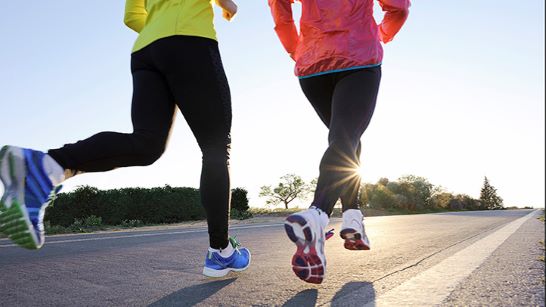THE NEW SCIENTIFIC DISCOVERY ON THE EFFECT OF SHORT EXERCISE ON THE BRAIN
The new discovery emerging from a survey by the University of California at Irvine and the Japanese University of Tsukuba published on the pages of the Proceedings of the National Academy of Sciences revealed that just 10 minutes of exercise has a great effect on the human brain.
After only 10 minutes of moderate physical activity, connectivity between the hippocampus and the cortex would increase. The result is better mnemonic capabilities and greater ease in keeping separate memories of similar experiences
YOGA, thai chi, jogging, walking. No matter how, just do a little 'motion to stimulate the brain and improve our memory. And you do not even need any kind of commitment: it is enough 10 minutes a day to notice concrete effects.
In the study, the researchers asked 20 healthy and young volunteers to perform 10 minutes of light exercise, after which they were subjected to a test that measures mnemonic capabilities and, in particular, the ability to recognize new objects from others already seen. The results showed a significant improvement in the memory of the participants, and the researchers, of course, decided to go deeper.
In a second experiment, they then asked 16 other volunteers to repeat the 10-minute training session of the first group, and they used a functional magnetic resonance imaging machine to observe their brains before and after the training session. In fact, discovering an important difference: after 10 minutes of physical activity, the connectivity between a region of the hippocampus called toothed gyrus, fundamental for the formation of memories, and different areas of the cortex that have the task of recovering past memories has improved considerably. keep distinct similar memories. Changes that were proportional to the improvement of the memory emerged from the first experiment.
"The hippocampus is a critical region for the formation of new memories, and it is one of the first brain regions that deteriorates with aging and, even more so, in the case of Alzheimer's," explains Michel Yassa, professor of the University of California of Irvine who coordinated the research. "For this reason, improving the functionality of the hippocampus is an extremely promising way to enhance memory even in everyday life".
Even a short walk, in short, could have the ability to improve cognitive skills and memory. A finding that, if confirmed, would prove particularly important for the elderly, most at risk of cognitive decline and dementia. Precisely for this reason, the next step will be studying the effects on older people, and in particular checking the usefulness of a daily exercise routine on the structure and functionality of their brain.
"The aim will be to identify how much and which physical exercise works best on the elderly - concludes Yassa - so that the results can be transformed into practical recommendations that help keep cognitive decline away".



Comments
Post a Comment